 Last additions - Gifu-Kakamigahara Air and Space Museum 岐阜かかみがはら航空宇宙博物館 Last additions - Gifu-Kakamigahara Air and Space Museum 岐阜かかみがはら航空宇宙博物館 |
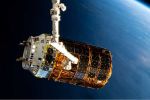
NASA photo of Kounotori. Kounotori was launched on a rocket, released into space, maneuvered to the ISS, then grabbed by the ISS’ robotic arm for docking. After the cargo was unloaded, Kounotori was filled with ISS waste materials and dropped to Earth to burn up during re-entry.
“Kounotori” is the Japanese word for stork which can mean “bird of happiness.” Because of this auspicious meaning, “Kounotori” became the nickname of the It certainly was a “bird” delivering happiness and important things. The kounotori stork is endangered in Japan.Jan 26, 2022
|
|
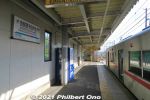
Kakamigahara Shiyakusho-mae Station platform.Jan 25, 2022
|
|

Fureai Bus Schedule from Kakamigahara Shiyakusho-mae Station. Only once an hour. The museum has the latest bus schedule in Japanese: http://www.sorahaku.net/access/ ふれあいバスJan 25, 2022
|
|
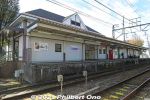
If you're coming from Meitetsu Nagoya Station, you can transfer at Inuyama Station to get on the Kakamigahara Line.Jan 25, 2022
|
|
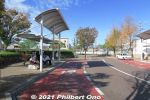
Bus stop in front of Kakamigahara Shiyakusho-mae Station. Take the No. 5 or No. 7 bus. Takes about 15–20 min. to the museum.Jan 25, 2022
|
|
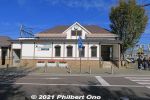
Kakamigahara Shiyakusho-mae Station (Meitetsu Kakamigahara Line) is the closest to Gifu-Kakamigahara Air and Space Museum. Kakamigahara Line runs between Meitetsu-Gifu Station in the city of Gifu with Shin-Unuma Station. 各務原市役所前駅Jan 25, 2022
|
|
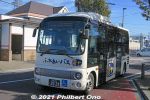
There's a bus stop in front of the museum. However, the bus is infrequent, so be sure to check the bus schedule when planning a visit.Jan 25, 2022
|
|
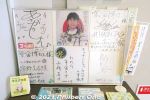
Placards autographed by Japanese astronauts displayed in the cafe.Jan 25, 2022
|
|
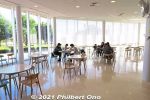
Sorahaku Cafe. No need a museum ticket to dine at this cafe. Curry, ramen, desserts, coffee, soft drinks, etc. Menu here.Jan 25, 2022
|
|
|
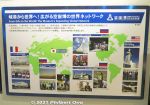
Sister aviation museums overseas.Jan 25, 2022
|
|

Passenger planes of the future. JAXA is developing a hybrid plane using electricity.Jan 25, 2022
|
|

Improved aircraft technologies and materials have improved the plane's range and efficiency.Jan 25, 2022
|
|

Passenger jets that made long-distance travel practical. Thanks to the revolutionary jet engine. Upper photo is a DC-6 prop plane that first flew in 1947 and which JAL used for its first overseas flight. Lower photo is a DC-8 jet plane first flew in 1958.Jan 25, 2022
|
|

Small exhibition about commercial aviation.Jan 25, 2022
|
|
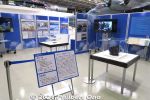
On the first floor, a small exhibition about commercial aviation.Jan 25, 2022
|
|
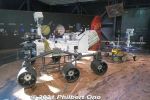
Mars rover nicknamed "Curiosity." Landed on Mars in Aug. 2012. キュリオシティ(1/1模型)Jan 25, 2022
|
|
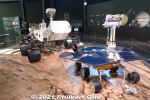
Mars rovers (full-size replicas). Foreground is 1/10 scale model of IKAROS (Interplanetary Kite-craft Accelerated by Radiation Of the Sun). 火星探査車マーズ・エクスプロレーション・ローバー (1/1模型)Jan 25, 2022
|
|
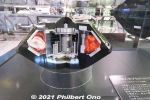
Cross section of Hayabusa II re-entry capsule. はやぶさ2Jan 25, 2022
|
|
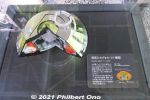
Full-scale model of Hayabusa II re-entry capsule. はやぶさ2Jan 25, 2022
|
|
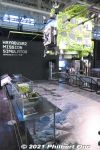
Jan 25, 2022
|
|

Hayabusa II Mission Simulator. Hayabusa II brought back to Earth asteroid samples from near-Earth asteroid 162173 Ryugu in Dec. 2020.Jan 25, 2022
|
|
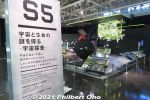
Section S5 is about space probes to learn more about the origin of space and life.Jan 25, 2022
|
|
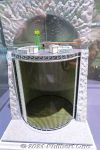
1/135 scale model of KAGRA's Super Kamiokande gravitational wave observatory built underground to detect neutrino, dark matter, and gravitational waves. Cylindrical stainless steel tank about 40 m in height and diameter, filled with ultrapure water.Jan 25, 2022
|
|

Exhibit about KAGRA (Kamioka Gravitational Wave Detector) in Kamioka Observatory in Gifu Prefecture.Jan 25, 2022
|
|
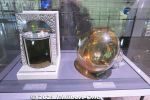
Scale model of the Super-Kamiokande and a photomultiplier tube that detects light from Cherenkov radiation. The Super-Kamiokande has 13,000 of these photomultiplier tubes.Jan 25, 2022
|
|

Japanese astronaut Yamazaki Naoko went aboard US Space Shuttle Discovery in April 2010 to the International Space Station (STS-131). More photos of her and her mission here.She is also the Gifu-Kakamigahara Air and Space Museum's ambassador. Jan 25, 2022
|
|
|

Japanese astronauts starting with Akiyama Toyohiro, the first Japanese national to go into space in Dec. 1990. He went to Russia's Mir space station via Soyuz rocket. His trip was sponsored by his company TBS where he was a TV journalist.Jan 25, 2022
|
|

Mohri Mamoru became the first Japanese astronaut to be sent by Japan's space program in Sept. 1992. The first Japanese astronaut to travel on the US Space Shuttle (Endeavour) where he worked in Spacelab-J.The third Japanese in space was the first Japanese and first Asian woman in space, Mukai Chiaki, a cardiovascular surgeon.Jan 25, 2022
|
|

Japanese astronauts from 1990 to present day.Jan 25, 2022
|
|
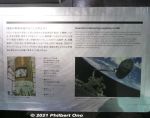
After nine launches and cargo spacecrafts, Kounotori was finally retired in Aug. 2020. Kounotori will be replaced with a new cargo spacecraft to launch in 2022. Nickname unknown as of this writing. Jan 25, 2022
|
|
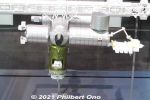
On the International Space Station (ISS), Japan's Kibo module is attached on the right and the Kounotori cargo vehicle is attached on the bottom.Kounotori was developed by the Japan Aerospace Exploration Agency (JAXA or Japan’s NASA) and used from Sept. 2009 to Aug. 2020 as expendable cargo spacecraft for delivering supplies and experiments to the International Space Station.Jan 25, 2022
|
|
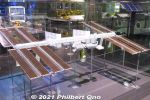
Model of International Space Station (ISS).Jan 25, 2022
|
|
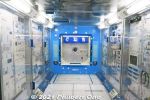
Inside Japan's Kibo module (replica) for International Space Station (ISS).Jan 25, 2022
|
|
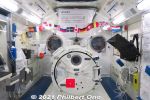
Inside Japan's Kibo module (replica) for International Space Station (ISS). The module is used to conduct various experiments in space.Jan 25, 2022
|
|
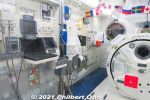
Inside Japan's Kibo module (replica) for International Space Station (ISS).Jan 25, 2022
|
|

Japan's Kibo experiment module (full-scale replica) for International Space Station (ISS). We can go inside. 日本実験棟「きぼう」Jan 25, 2022
|
|
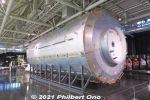
Japan's Kibo module (full-scale replica) for International Space Station (ISS). 日本実験棟「きぼう」Jan 25, 2022
|
|

US astronaut spacesuit helmet.Jan 25, 2022
|
|
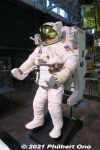
NASA astronaut spacesuit and propulsion unit (actual size). 宇宙服と宇宙遊泳噴射装置(1/1模型)Jan 25, 2022
|
|
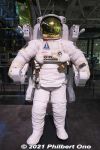
NASA astronaut spacesuit and propulsion unit (actual size). 宇宙服と宇宙遊泳噴射装置(1/1模型)Jan 25, 2022
|
|

US Space Shuttle (1/25 scale model). スペースシャトル(1/25模型)Jan 25, 2022
|
|

US Space Shuttle (1/25 scale model). スペースシャトル(1/25模型)Jan 25, 2022
|
|
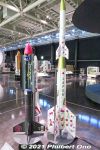
Jan 25, 2022
|
|
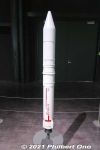
Epsilon rocket.Jan 25, 2022
|
|
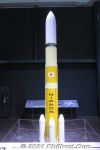
H3 rocket (1/20 scale model). H3ロケット(1/20模型)Jan 25, 2022
|
|
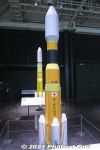
H-IIB rocket that took the Kounotori cargo spacecraft to the ISS.Jan 25, 2022
|
|
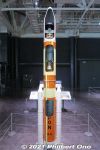
H-II two-stage rocket made with 100% Japanese technologies.Jan 25, 2022
|
|
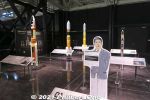
Japan's rockets, all unmanned. Cutout of Itokawa Hideo, aeronautical engineer.Jan 25, 2022
|
|
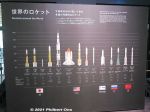
Rockets from around the world. Saturn V (Apollo program) was by far the largest.Jan 25, 2022
|
|
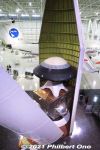
H-II rocket and payload. H-IIロケット フェアリングJan 25, 2022
|
|

H-II rocket. H-IIロケット フェアリングJan 25, 2022
|
|
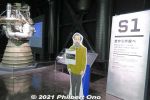
Entering the space museum on the second floor.Jan 25, 2022
|
|
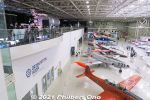
The space-related exhibits are on the 2nd floor.Jan 25, 2022
|
|
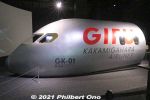
Flight simulator (Closed when I was there.)Jan 25, 2022
|
|
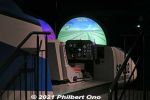
Flight simulatorJan 25, 2022
|
|
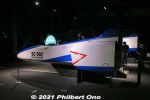
Flight simulatorJan 25, 2022
|
|
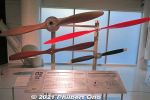
Different airplane propellers. Very detailed info about most of the museum's planes is at j-hangarspace.jp.Jan 25, 2022
|
|

Kawasaki XOH-1 wooden mockup helicopter cockpit.Jan 25, 2022
|
|
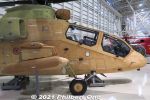
Kawasaki XOH-1 wooden mockup helicopterJan 25, 2022
|
|
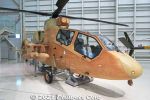
Kawasaki XOH-1 wooden mockup helicopter from the 1990s.Jan 25, 2022
|
|
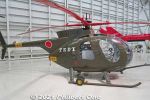
Kawasaki-Hughes OH-6J helicopter. I remember seeing this in movies.Jan 25, 2022
|
|
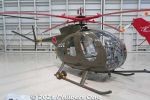
Kawasaki-Hughes OH-6J helicopter from 1974.Jan 25, 2022
|
|
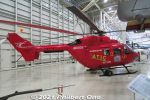
BK117P-5 helicopterJan 25, 2022
|
|
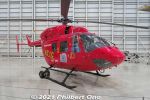
BK117P-5 helicopterJan 25, 2022
|
|

Jan 25, 2022
|
|
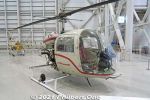
Toward the back of the hall are helicopters. This is Kawasaki-Bell 47G3B-KH4 from 1971.Jan 25, 2022
|
|
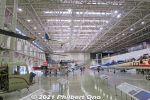
Jan 25, 2022
|
|
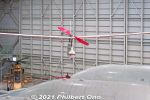
KoToNo Limited also placed 4th at the 16th Birdman Rally at Lake Biwa in Aug. 1992.Jan 25, 2022
|
|
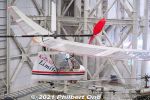
HYPER CHick "KoToNo Limited" is a pedal-powered plane flown by a woman. It was named after the woman pilot, HORI Kotono. Set a new record in July 1992 in Shizuoka Prefecture. Jan 25, 2022
|
|
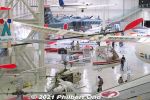
Jan 25, 2022
|
|
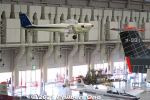
Cygnus powered sailplane.Jan 25, 2022
|
|
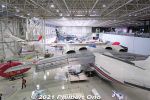
NAL Asuka STOL Research AircraftJan 25, 2022
|
|
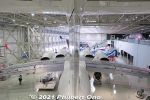
Rear of NAL Asuka STOL Research Aircraft.Jan 25, 2022
|
|
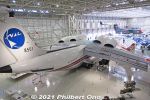
NAL Asuka STOL Research AircraftJan 25, 2022
|
|
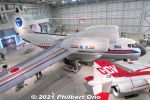
NAL Asuka STOL Research AircraftJan 25, 2022
|
|

NAL Asuka STOL Research AircraftJan 25, 2022
|
|
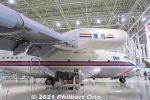
NAL Asuka STOL Research AircraftJan 25, 2022
|
|
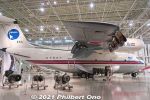
NAL Asuka STOL Research Aircraft 低騒音STOL実験機「飛鳥」Jan 25, 2022
|
|
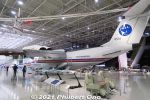
NAL Asuka STOL Research AircraftJan 25, 2022
|
|
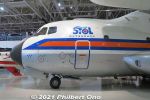
NAL Asuka STOL Research Aircraft 低騒音STOL実験機「飛鳥」Jan 25, 2022
|
|
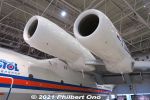
NAL Asuka STOL Research AircraftJan 25, 2022
|
|
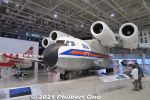
NAL Asuka STOL Research Aircraft was used to experiment with short takeoffs and landings. 低騒音STOL実験機「飛鳥」Jan 25, 2022
|
|

NAL Asuka STOL Research Aircraft (National Aerospace Laboratory) flew during 1986–1989. 低騒音STOL実験機「飛鳥」Jan 25, 2022
|
|
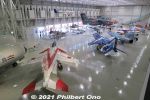
Jan 25, 2022
|
|
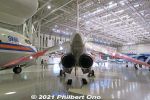
Jan 25, 2022
|
|
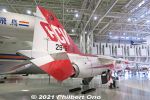
Jan 25, 2022
|
|

Research jet. T-2CCV研究機Jan 25, 2022
|
|
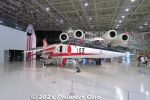
Mitsubishi T-2 Control-Configured Vehicle (CCV) Research jet. T-2CCV研究機Jan 25, 2022
|
|
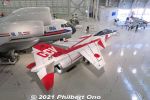
Mitsubishi T-2 Control-Configured Vehicle (CCV)Jan 25, 2022
|
|
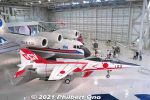
Mitsubishi T-2 Control-Configured Vehicle (CCV)Jan 25, 2022
|
|
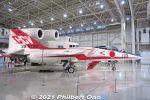
Mitsubishi T-2 Control-Configured Vehicle (CCV) from 1972. Research jet. T-2CCV研究機Jan 25, 2022
|
|
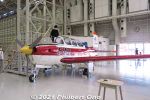
Fuji T-3 trainer plane. There was steps to see the cockpit. T-3コックピット搭乗体験Jan 25, 2022
|
|
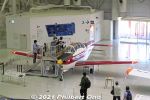
Fuji T-3 trainer plane from 1974. During certain times, visitors can sit in the cockpit for photos. T-3コックピット搭乗体験Jan 25, 2022
|
|
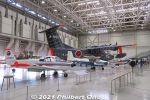
Fuji FA-200Jan 25, 2022
|
|
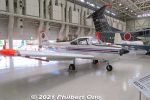
Fuji FA-200 Aero Subaru monoplane from the 1960s.Jan 25, 2022
|
|
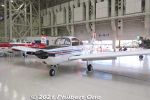
Fuji FA-200 Aero Subaru monoplane from the 1960s.Jan 25, 2022
|
|

N-62 Eaglet light aircraft from 1964. By Nihon University and Itochu.Jan 25, 2022
|
|
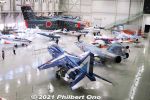
Mitsubishi T-2 Blue Impulse aerobatic jet.Jan 25, 2022
|
|
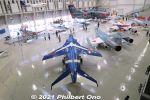
Mitsubishi T-2 Blue Impulse aerobatic jet.Jan 25, 2022
|
|
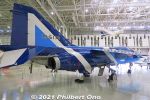
Mitsubishi T-2 Blue Impulse aerobatic jet.Jan 25, 2022
|
|
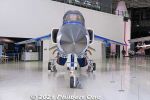
Nose of Mitsubishi T-2 Blue Impulse aerobatic jet.Jan 25, 2022
|
|
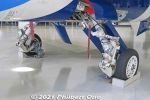
Gear of Mitsubishi T-2 Blue Impulse aerobatic jet.Jan 25, 2022
|
|
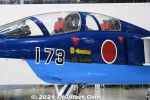
Mitsubishi T-2 Blue Impulse aerobatic jet.Jan 25, 2022
|
|
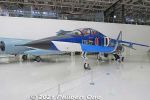
Mitsubishi T-2 Blue Impulse aerobatic jet. T-2高等練習機Jan 25, 2022
|
|
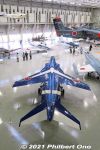
Mitsubishi T-2 T-2高等練習機Jan 25, 2022
|
|
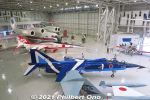
Mitsubishi T-2 Blue Impulse aerobatic team jet from 1981. Retired in 1995. The Blue Impulse aerobatic team gave air shows at Gifu Airbase.Jan 25, 2022
|
|
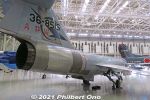
F-104J Starfighter jet exhaust.Jan 25, 2022
|
|
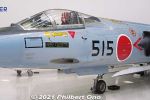
F-104J Starfighter cockpit.Jan 25, 2022
|
|
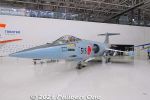
F-104J StarfighterJan 25, 2022
|
|
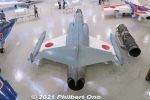
Mitsubishi-Lockheed F-104J StarfighterJan 25, 2022
|
|
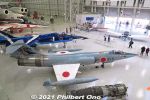
Mitsubishi-Lockheed F-104J StarfighterJan 25, 2022
|
|
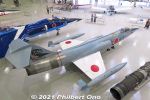
Mitsubishi-Lockheed F-104J Starfighter dating from 1963. Retired in 1986.Jan 25, 2022
|
|
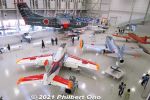
Fuji T-1BJan 25, 2022
|
|
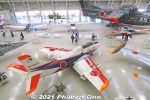
Fuji T-1BJan 25, 2022
|
|
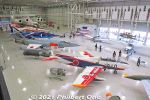
Fuji T-1BJan 25, 2022
|
|
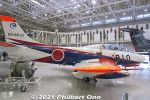
Fuji T-1BJan 25, 2022
|
|
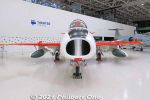
Fuji T-1BJan 25, 2022
|
|
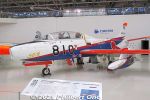
Fuji T-1B from 1960. First jet aircraft made in Japan.Jan 25, 2022
|
|
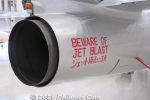
Lockheed T-33A engine exhaust.Jan 25, 2022
|
|
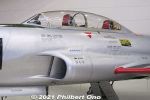
Lockheed T-33A cockpit.Jan 25, 2022
|
|
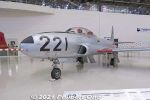
Lockheed T-33AJan 25, 2022
|
|
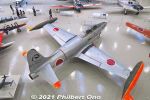
Lockheed T-33A, dated 1956. Built by Kawasaki and retired in 1994. Brought to the museum by helicopter from Gifu Airbase.Jan 25, 2022
|
|
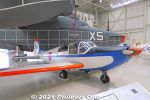
X1G1B High-Lift Research AircraftJan 25, 2022
|
|
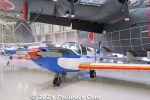
X1G1B High-Lift Research Aircraft based on Saab 91B Safir. Jan 25, 2022
|
|
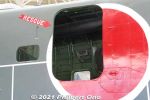
Open door of UF-XS Experimental Flying Boat.Jan 25, 2022
|
|
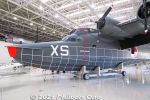
UF-XS Experimental Flying Boat. Note that none of the planes can be entered. UF-XS実験飛行艇Jan 25, 2022
|
|
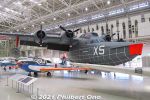
UF-XS Experimental Flying Boat (rear).Jan 25, 2022
|
|
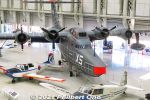
UF-XS Experimental Flying BoatJan 25, 2022
|
|
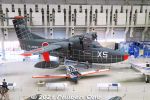
UF-XS Experimental Flying Boat UF-XS実験飛行艇Jan 25, 2022
|
|
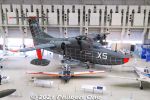
UF-XS Experimental Flying Boat based on Grumman UF-1 Albatross. UF-XS実験飛行艇Jan 25, 2022
|
|
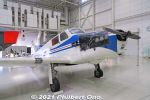
Kawasaki KAL-1 Jan 25, 2022
|
|
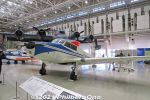
Kawasaki KAL-1 from 19523, the first plane designed and produced in Kakamigahara after World War II.Jan 25, 2022
|
|
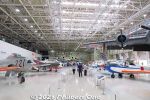
Jan 25, 2022
|
|
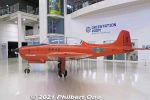
Kawasaki KAT-1, training aircraft.Jan 25, 2022
|
|
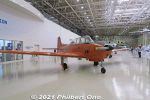
Kawasaki KAT-1Jan 25, 2022
|
|
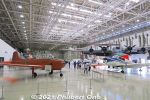
Jan 25, 2022
|
|
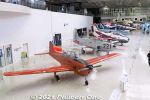
Kawasaki KAT-1, training plane dated 1954.Jan 25, 2022
|
|
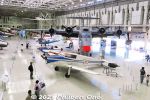
Jan 25, 2022
|
|
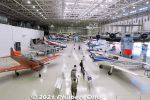
Jan 25, 2022
|
|
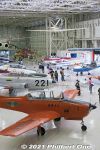
Jan 25, 2022
|
|
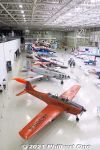
Jan 25, 2022
|
|
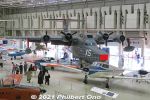
Jan 25, 2022
|
|
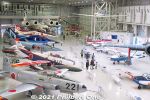
Very impressive lineup of planes on both sides. A few also hang from the ceiling.Jan 25, 2022
|
|
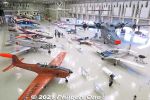
Main display hall of airplanes at Gifu-Kakamigahara Air and Space Museum. A lineup of post-World War II aircraft.Jan 25, 2022
|
|
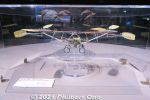
Jan 25, 2022
|
|
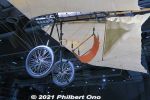
Jan 25, 2022
|
|
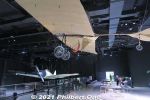
Jan 25, 2022
|
|
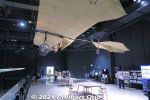
Jan 25, 2022
|
|
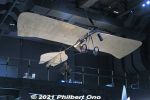
Jan 25, 2022
|
|
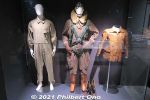
L-R: Aircraft mechanic's uniform, fighter pilot's flight suit, and pilot's jacket. Dating from the 1930s-40s.Jan 25, 2022
|
|
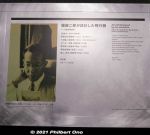
About Horikoshi Jiro who designed the Zero fighter and later the YS-11.Jan 25, 2022
|
|
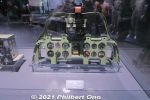
川崎 ハ140エンジン(「飛燕」二型搭載)Jan 25, 2022
|
|
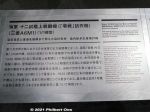
About the Mitsubishi A6M1 Zero fighter prototype. The Zero fighter first flew at Kakamigahara. About 10,000 were made.Jan 25, 2022
|
|

Mitsubishi A6M1 Zero fighter prototype replica. 十二試艦上戦闘機(「零戦」試作機)(三菱A6M1) (1/1模型)Jan 25, 2022
|
|
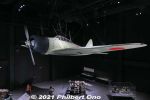
Full-size replica of Mitsubishi A6M1 Zero fighter prototype. The Zero was carrier based and used for the attack on Pearl Harbor. 十二試艦上戦闘機(「零戦」試作機)(三菱A6M1) (1/1模型)Jan 25, 2022
|
|
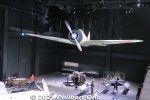
Full-size replica of Mitsubishi A6M1 Zero fighter prototype. 十二試艦上戦闘機(「零戦」試作機)(三菱A6M1) (1/1模型)Jan 25, 2022
|
|
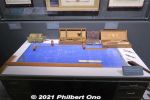
Airplane design drafting table and implements.Jan 25, 2022
|
|
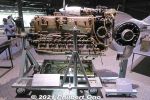
Engine used on the Hien fighter. 川崎 ハ140エンジン(「飛燕」二型搭載)Jan 25, 2022
|
|
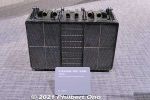
Airplane radiator to cool the engine.Jan 25, 2022
|
|
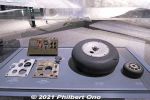
Jan 25, 2022
|
|
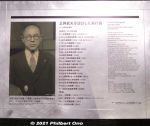
Doi Takeo designed many of the Japanese Army's planes.Jan 25, 2022
|
|

About Kawasaki Ki-61 Hien fighter. 三式戦闘機二型「飛燕」(川崎キ61-II改)Jan 25, 2022
|
|
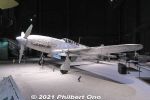
Kawasaki Ki-61 Hien fighter. 三式戦闘機二型「飛燕」(川崎キ61-II改)Jan 25, 2022
|
|
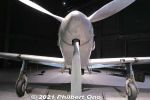
Prop of Kawasaki Ki-61 Hien fighter.Jan 25, 2022
|
|
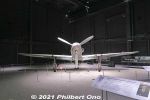
Front of Kawasaki Ki-61 Hien fighter.Jan 25, 2022
|
|
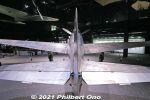
Rear of Kawasaki Ki-61 Hien fighter.Jan 25, 2022
|
|
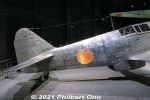
Kawasaki Ki-61 Hien fighterJan 25, 2022
|
|

Kawasaki Ki-61 Hien fighterJan 25, 2022
|
|
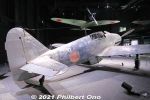
Kawasaki Ki-61 Hien fighterJan 25, 2022
|
|
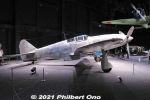
Kawasaki Ki-61 Hien fighter 三式戦闘機二型「飛燕」(川崎キ61-II改)Jan 25, 2022
|
|

About the Kawasaki Ki-61 Hien fighter.Jan 25, 2022
|
|
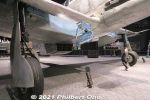
Kawasaki Ki-61 Hien fighterJan 25, 2022
|
|
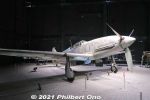
Kawasaki Ki-61 Hien fighter was used by the Japanese Army. 三式戦闘機二型「飛燕」(川崎キ61-II改)Jan 25, 2022
|
|
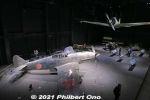
The museum's highlight piece is this restored Kawasaki Ki-61 Hien fighter prototype, the only one in the world.Jan 25, 2022
|
|
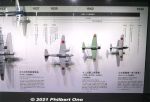
Chronology of Japan's aviation history until 1945. Models of the Zero fighter and Hien fighter displayed.Jan 25, 2022
|
|

Chronology of Japan's aviation history.Jan 25, 2022
|
|

Chronology of Japan's aviation history. The model on the right is the Type 92 Heavy Bomber that first flew in 1931.Jan 25, 2022
|
|

Chronology of Japan's aviation history from 1903. In 1910, the first powered flights in Japan were conducted with planes purchased from Germany and France. Japan learned about planes from the West.Jan 25, 2022
|
|

All the planes which first flew in Japan here in Kakamigahara.Jan 25, 2022
|
|

All the planes which first flew in Japan here in Kakamigahara.Jan 25, 2022
|
|
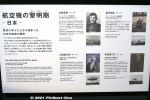
Japanese aviation industry pioneers.Jan 25, 2022
|
|
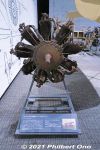
La Rhone propeller engine Type C commonly used in planes from 1910 to 1920.Jan 25, 2022
|
|
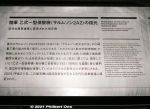
About the Salmson 2A2.Jan 25, 2022
|
|

View of Salmson 2A2's tail underneath. It's hollow. 乙式一型偵察機(サルムソン2A2)Jan 25, 2022
|
|
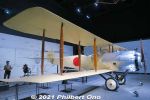
Salmson 2A2 (1/1 scale model). 乙式一型偵察機(サルムソン2A2)Jan 25, 2022
|
|
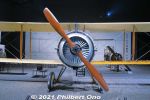
Front of Salmson 2A2. 乙式一型偵察機(サルムソン2A2)Jan 25, 2022
|
|
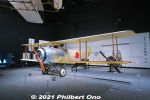
Salmson 2A2 was built in Gifu under a license from France. Production started in 1922 by Kawasaki Dockyard Co., Ltd., starting Japan's aviation industry. 乙式一型偵察機(サルムソン2A2)Jan 25, 2022
|
|
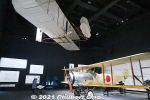
Wright Flyer in the same room as another plane. 乙式一型偵察機(サルムソン2A2)Jan 25, 2022
|
|
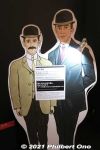
Wright BrothersJan 25, 2022
|
|
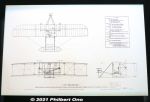
About the Wright Flyer.Jan 25, 2022
|
|

About the Wright Flyer, the world's first powered airplane.Jan 25, 2022
|
|
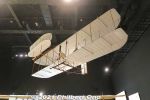
The Wright Flyer (actual size replica) is one of the first airplanes you see. ライトフライヤーJan 25, 2022
|
|
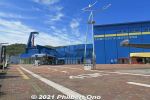
Entrance to the museum is here on the left side of the building. Admission charged. (Free admission on Nov. 3, Culture Day.)Jan 25, 2022
|
|
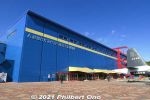
Museum's big, blue, two-story building is like an airplane hangar. The first floor has over 30 retired airplanes and replicas. The second floor has space-related exhibits. Expect to spend at least a few hours.Jan 25, 2022
|
|
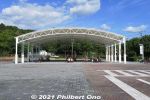
Outdoor Event Tent.Jan 25, 2022
|
|
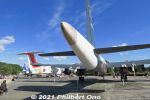
Rear of P-2J.Jan 25, 2022
|
|
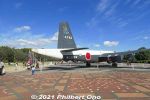
Rear of P-2J. Next to the outdoor planes is a grassy lawn for kids to run around. No balls, frisbees, or tents allowed. 川崎P2-J対潜哨戒機Jan 25, 2022
|
|
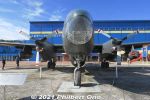
Nose of P-2J. The plane was based on the US Navy's P2-V7 Neptune.Jan 25, 2022
|
|
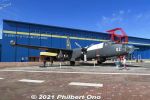
P-2J was an anti-submarine patrol aircraft. Detects and attacks submarines. Flew from 1979 to 1994. 川崎P2-J対潜哨戒機Jan 25, 2022
|
|
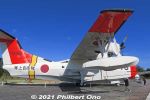
US-1A 9078Jan 25, 2022
|
|
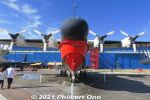
Nose of US-1A 9078Jan 25, 2022
|
|
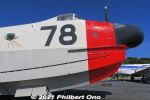
US-1A 9078. These outdoor planes are painted anew every several years.Jan 25, 2022
|
|
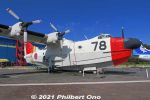
US-1A 9078 rescue plane that flew from 1983 to 1995. 新明和US-1A救難飛行艇Jan 25, 2022
|
|

About the YS-11A.Jan 25, 2022
|
|
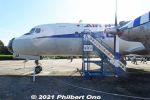
Too bad the YS-11A was closed due to the pandemic. 日本航空機製造 YS-11A-500R 中型輸送機Jan 25, 2022
|
|
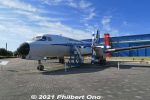
The YS-11A is the only plane where the public could go inside, but it was closed due to coronavirus in 2021.Jan 25, 2022
|
|
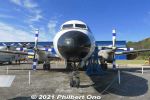
Front of YS-11A. 日本航空機製造 YS-11A-500R 中型輸送機Jan 25, 2022
|
|
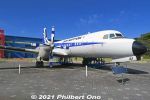
YS-11A, Japan's first passenger plane built after World War II. In service from the 1960s to 1995. Displayed at Gifu-Kakamigahara Air and Space Museum.Jan 25, 2022
|
|
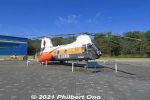
Kawasaki-Vertol KV-107IIA-4 helicopter that was used by the Japan Air Self-Defense Force from 1973 to 1995. 川崎 V107-AヘリコプターJan 25, 2022
|
|
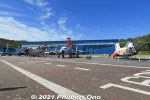
Outdoor exhibits of planes. Although the museum is next to Gifu Airbase, the airbase and runway cannot be seen from the museum.Museum hours: 10:00 am to 5:00 pm (till 6:00 pm on weekends and national holidays), closed on the first Tuesday of the month (open if it's a national holiday and closed the next day instead) and Dec. 28 to Jan. 2. 屋外実機展示場Jan 25, 2022
|
|
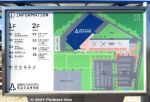
In March 2018, after undergoing major renovations and floor expansion, the museum reopened with a much larger floor space and more exhibits. The museum's name also added "Gifu" to indicate Gifu Prefecture's co-operation and ownership.The museum's nickname is "Sorahaku" (空宙博). As shown by this map, there are outdoor planes, one large building, and parking lots.Jan 25, 2022
|
|

Gifu-Kakamigahara Air and Space Museum has both outdoor and indoor exhibits of civilian and military airplanes, prototypes, replicas, and scale models (especially rockets). Opened in March 1996 near Japan Air Self-Defense Force Gifu Airbase. It's in a park-like area with a large hangar-type building filled with planes.
This is the entrance to the museum grounds. Nearest train station is Kakamigahara Shiyakusho-mae Station (Meitetsu Kakamigahara Line). Details below.Jan 25, 2022
|
|
|
|
|
|